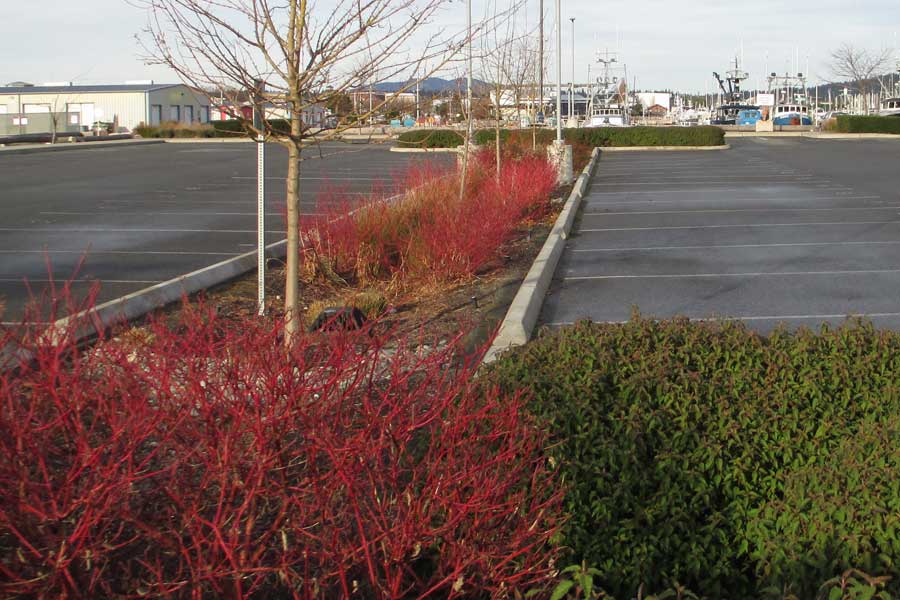Sustainable Design
...Shapes a Heathy Ecosystem
Environment-friendly efforts transition the shoreline from gray to green
Sustainable design at the Marine Technology Center values the natural environment as an integral part of the local marine ecosystem and economy. The building's focus on sustainability is helping to protect Fidalgo Bay, which is threatened by environmental impacts from air and water pollution.
Stormwater runoff is the leading pollutant in Puget Sound. It carries oils, fertilizers, and other pollutants into the bay from rivers, streams, and urban storm drains.
With the help of rain gardens, stormwater controls, and shoreline restoration, sustainable design curbs negative impacts on marine habitats. Cleaner waters can nurture forage fish, juvenile salmon, and vital estuary functions.
Solar and geothermal energy sources help protect marine ecosystems. Unlike coal, oil, and gas, these sources produce no CO2. As oceans absorb increasing CO2 from the atmosphere, they become more acidic. Ocean acidification changes the ocean's natural chemical balance and threatens marine ecosystems.
Low‑impact design
The Marine Technology Center is a model for sustainable building and landscaping. Solar panels and geothermal heating and cooling reduce carbon emissions. Shrubs and decorative grasses replace water-, labor-, and chemical-hungry lawns. Rain gardens, permeable paving, and catchment systems slow and filter polluted runoff.
Stormwater capture
Underground cisterns at the Anacortes Depot and Marine Technology Center capture runoff to keep land-borne pollutants from reaching the bay. Beneath a nearby parking lot, a bio-retention system stores and treats polluted vehicle runoff and a street-side bioswale uses vegetation to filter contaminated water.
Pavement that breathes
Solid paving on roads, sidewalks, and parking lots channels vehicle, pet, and other pollutants to the bay. Permeable pavement and pavers—like those here at the Marine Technology Center—allow water to percolate into soil below that acts like a filter, absorbing contaminants before they reach the bay.




